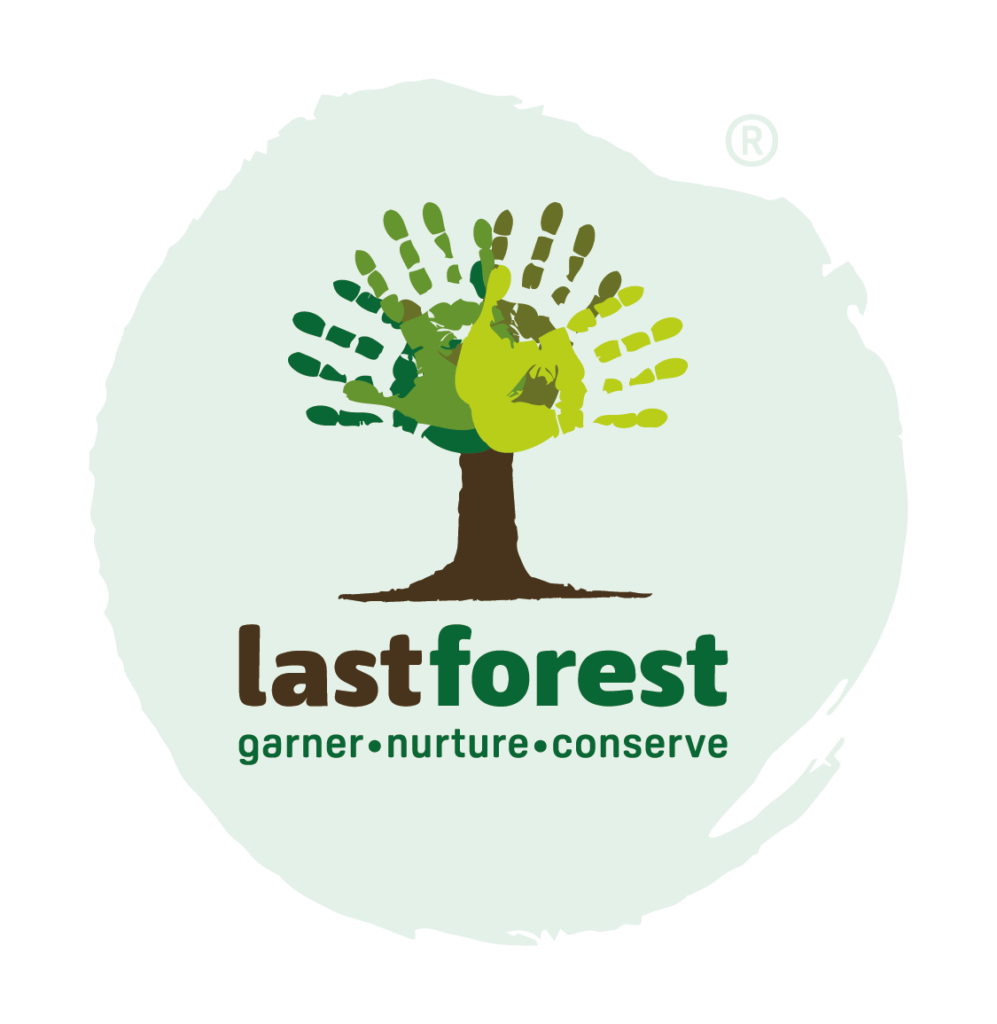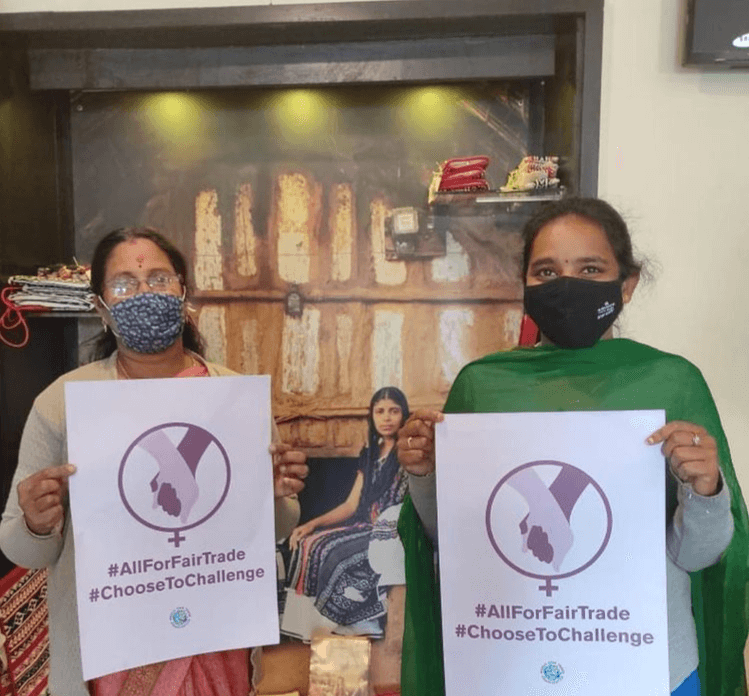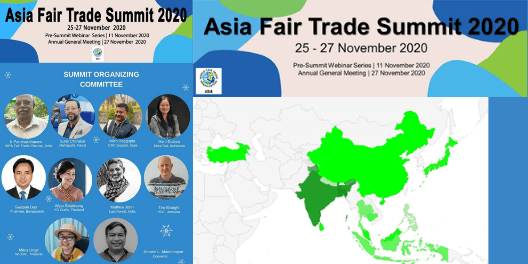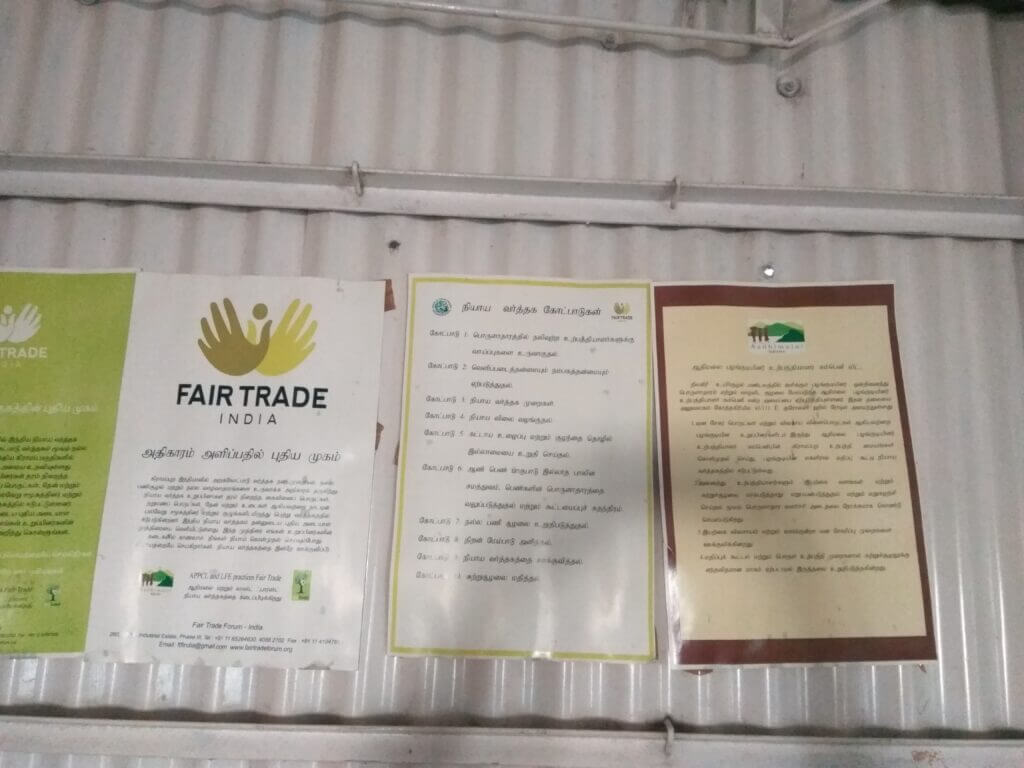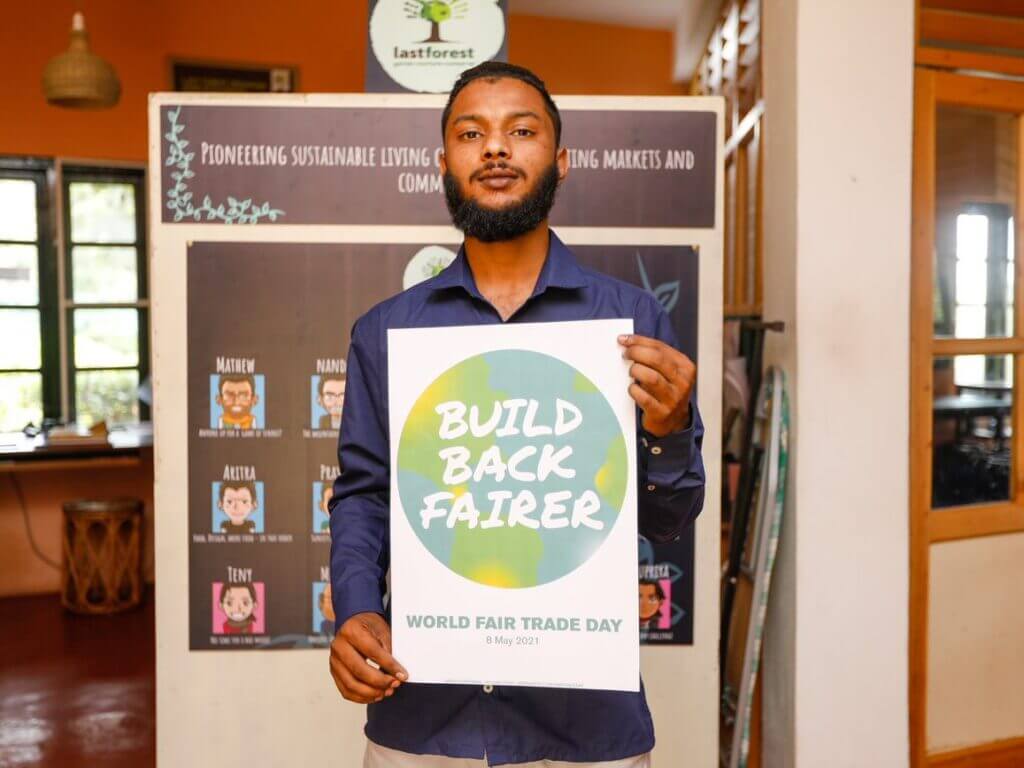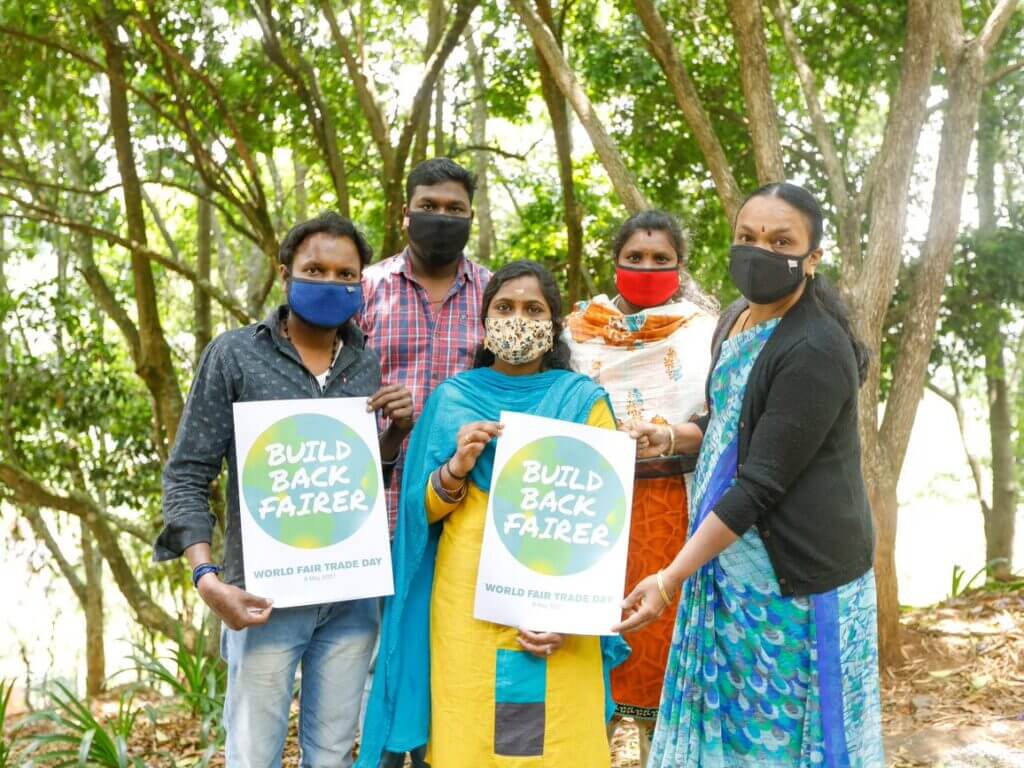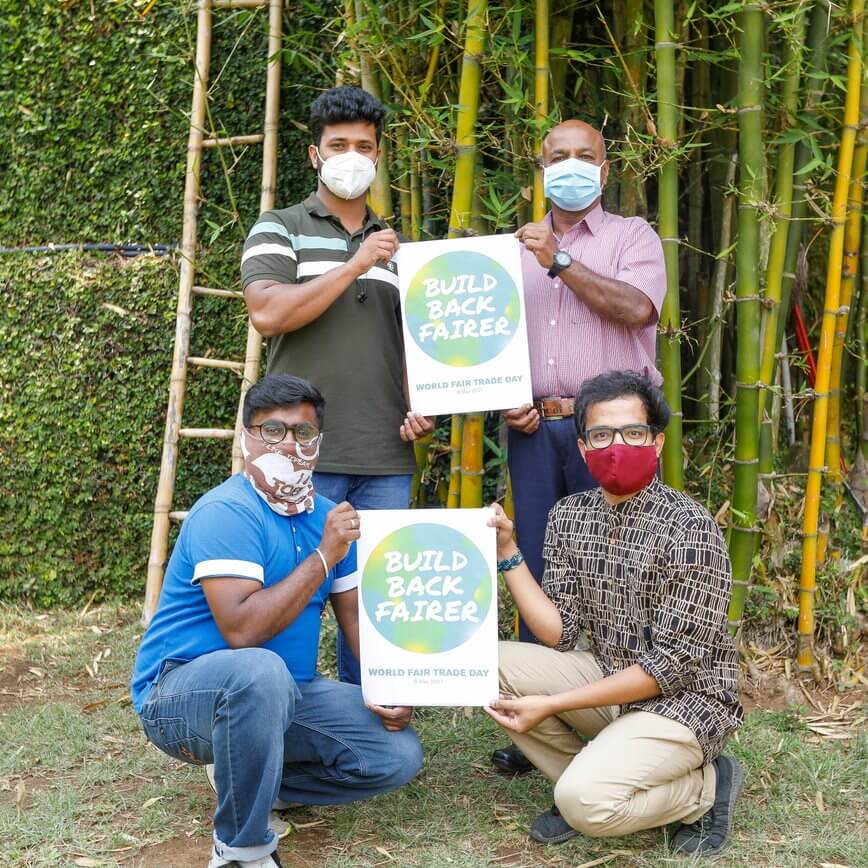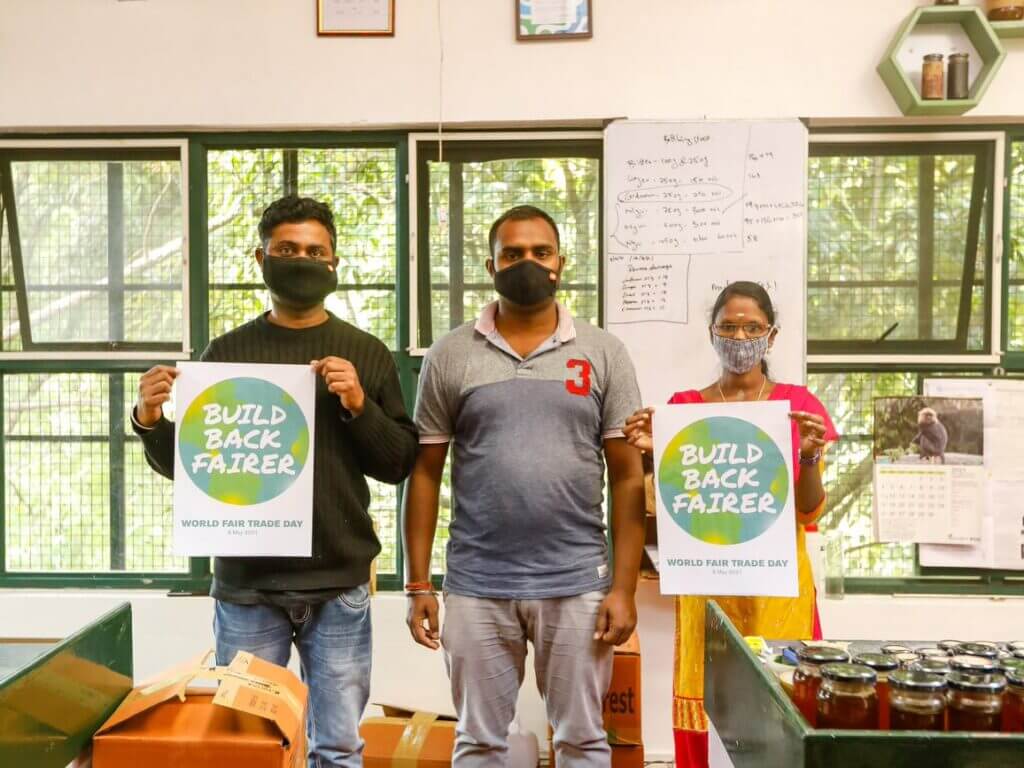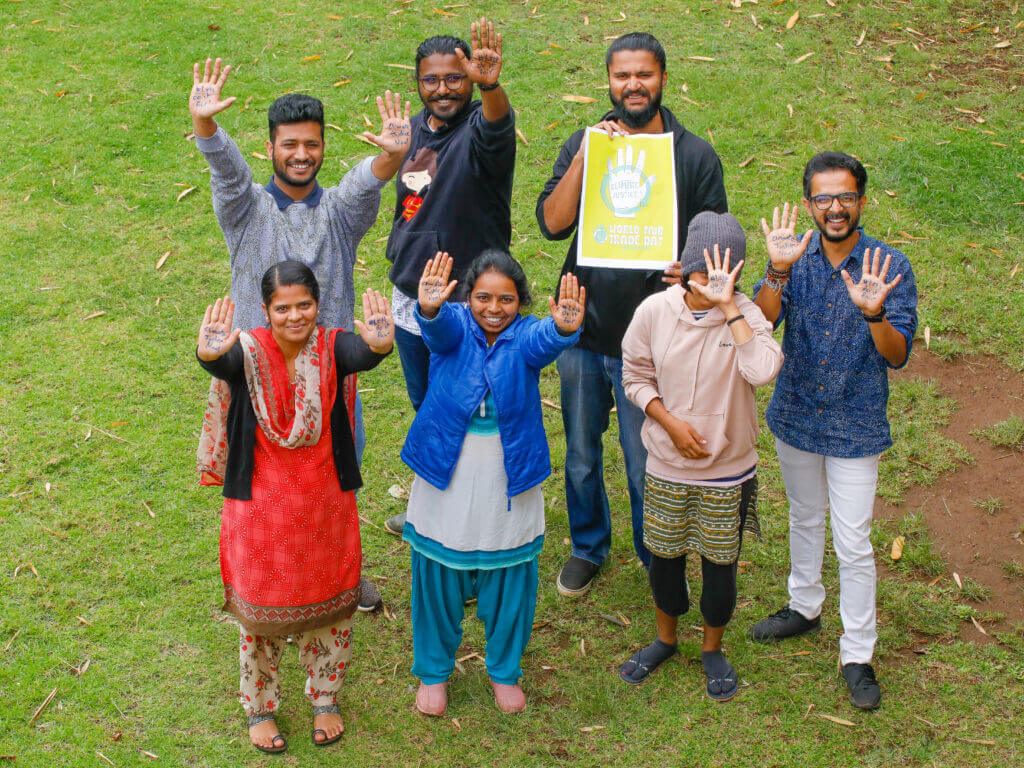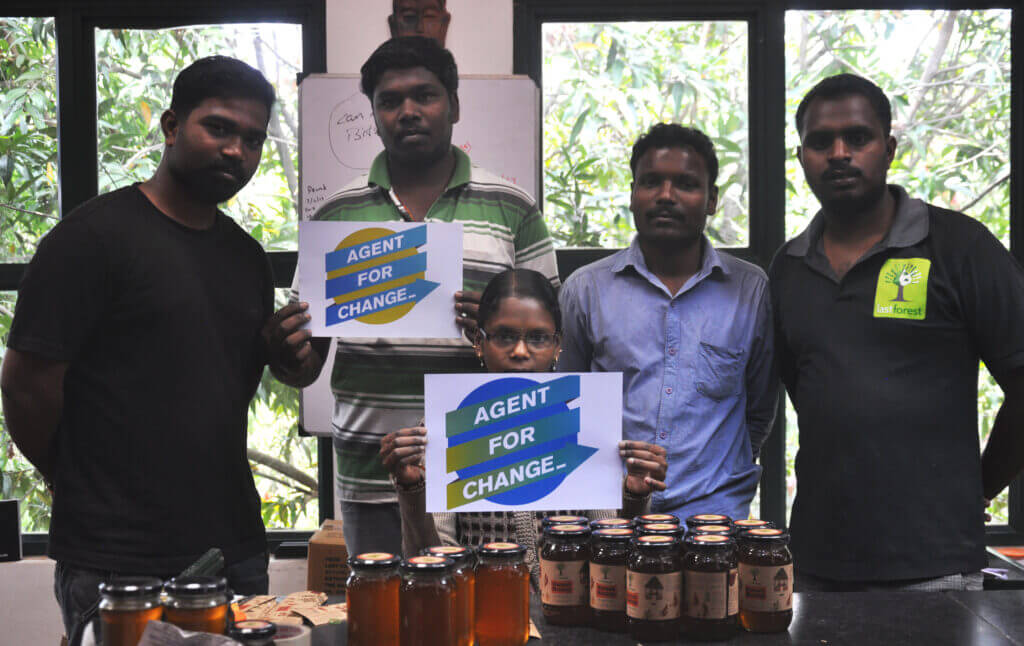World Fair Trade Organization
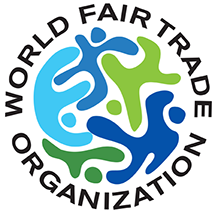
Fair Trade is a trading partnership, based on dialogue, transparency and respect, that seeks a greater equity in international trade. It contributes to sustainable development by offering better trading conditions to, and securing the rights of marginalized producers and workers, especially in the South.
Fair Trade Organizations have a clear commitment to Fair Trade as the principle core of their mission. They, backed by customers, are actively engaged in supporting producers, awareness raising and in campaigning for changes in the rules and practice of conventional international trade.
The World Fair Trade Organization is a global community of social enterprises that practice Fair Trade. Last Forest has been a part of this community and is certified Fair Trade since 2016. The principles of Fair Trade run deep in all parts of our supply chain. The principles are instrumental for us as we take up our daily practices and how we interact with our stakeholders!
Listen to a special podcast between Erinch Sahan, Chief Executive at the Word Fair Trade Organization and Mathew John, Managing Director at Last Forest on how social enterprises have dealt with the pandemic here.
Here is another podcast on the journey of Last Forest, hosted by Erinch Sahan, Chief Executive at WFTO and Mathew John, Managing Director at Last Forest.
In 2017, Last Forest was the winner of the Mohammed Islam design award for the best new product packaging for our honey. You can check it out here.
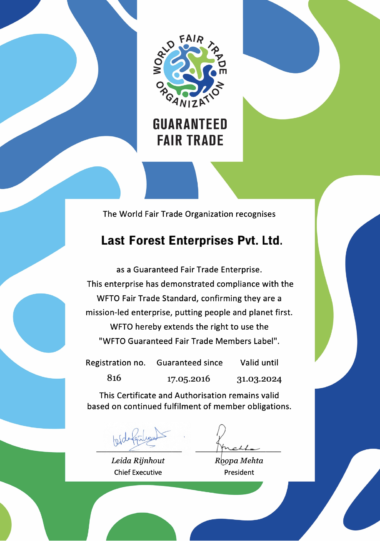
The WFTO Fair Trade Standard
The WFTO Fair Trade Standard comprises the 10 Principles of Fair Trade with a set of compliance criteria to assess how well members are implementing the Principles. The WFTO Standard applies to all members of WFTO: Fair Trade Organisations that trade Fair Trade Products (FTOs), Fair Trade Networks (FTN) and Fair Trade Support Organisations (FTSO).
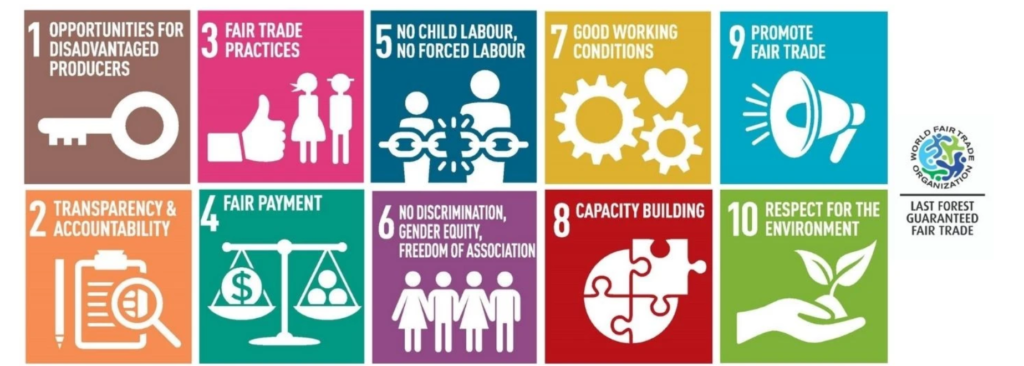
1. Opportunities for disadvantaged producers
Poverty reduction through trade forms a key part of Last Forest’s aims. We support marginalized small producers, whether these are independent family businesses, or grouped in associations or co-operatives. We seek to enable them to move from income insecurity and poverty to economic self-sufficiency and ownership.
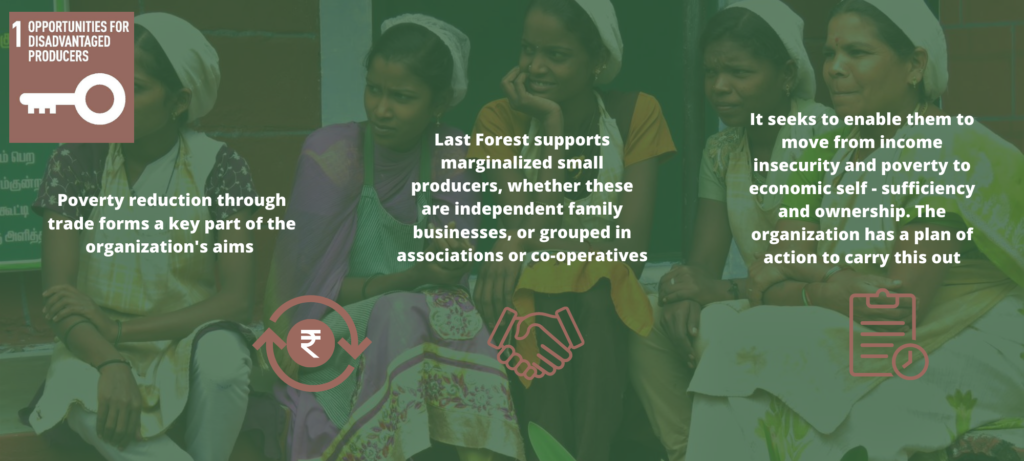
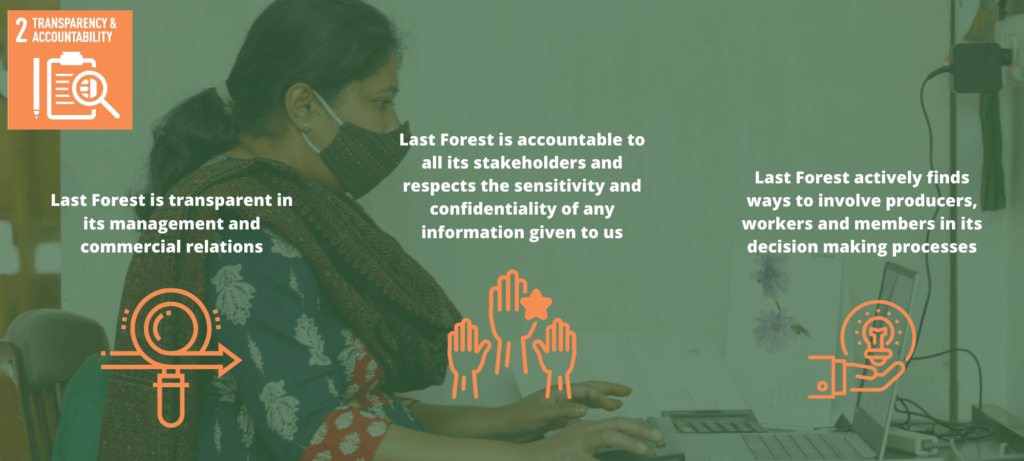
2. Transparency and Accountability
Last Forest is transparent in its management and commercial relations. It is accountable to all its stakeholders and respects the sensitivity and confidentiality of all information supplied. We find appropriate, participatory ways to involve employees, members and producers in our decision making processes. We ensure that relevant information is provided to all our trading partners.
3. Fair Trade Practices
Last Forest trades with the concern for the social, economic and environmental well being of marginalized small producers and do not maximise profit at their expense. We are responsible and professional in meeting our commitments in a timely manner. Suppliers respect contracts and deliver products on time and to the desired quality and specifications.
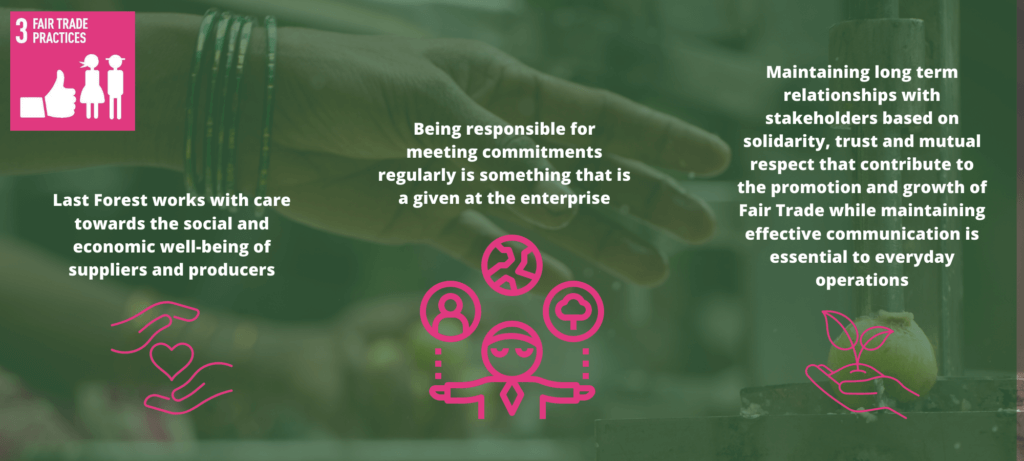
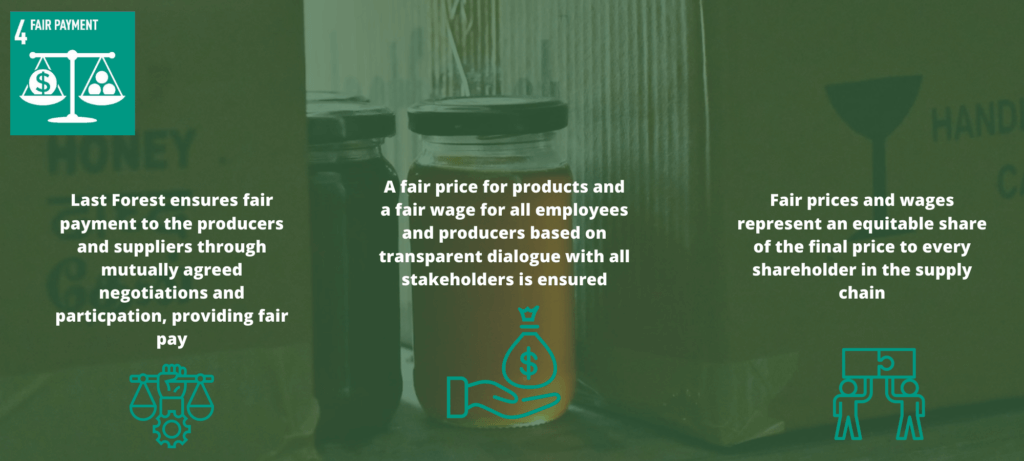
4. Fair Payment
A fair payment is one that has been mutually negotiated and agreed by all through on-going dialogue and participation, which provides fair pay to the producers and can also be sustained by the market, taking into account the principle of equal pay for equal work by women and men. The aim is always the payment of a local living wage.
5. Ensuring no child and forced labour
Last Forest adheres to the UN Convention on the Rights of the Child, and national/local law on the employment of children. We ensure that there is no forced labour in our workforce and/or members or homeworkers.
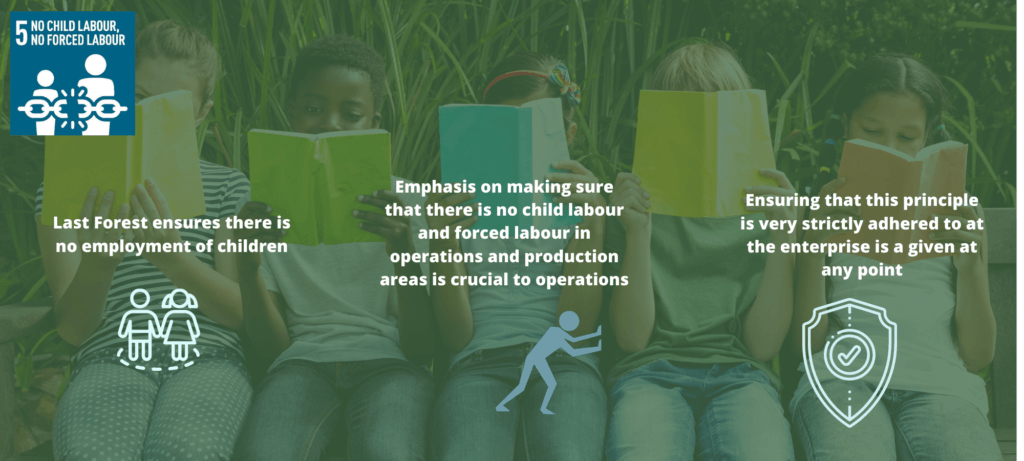
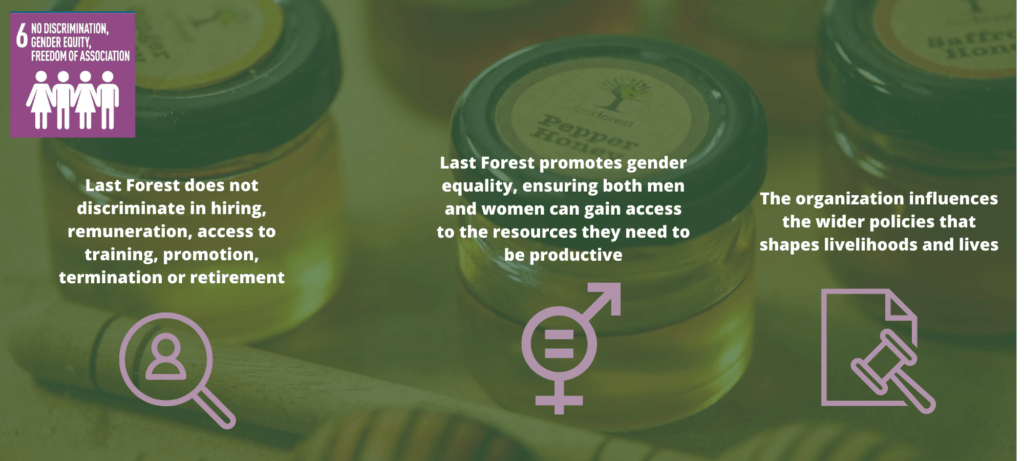
6. Commitment to Non-Discrimination, Gender Equity and Women’s Economic Empowerment and Freedom of Association
Last Forest does not discriminate in hiring, remuneration, access to training, promotion, termination or retirement based on race, caste, national origin, religion, disability, gender, sexual orientation, union membership, political affiliation, HIV/AIDS status or age.
7. Ensuring Good Working Conditions
Last Forest provided a safe and healthy working environment for employees and/or members. It complies, at a minimum, with national and local laws and ILO conventions on health and safety. Working hours and conditions for employees and/or members (and any homeworkers) comply with conditions established by national and local laws and ILO conventions.
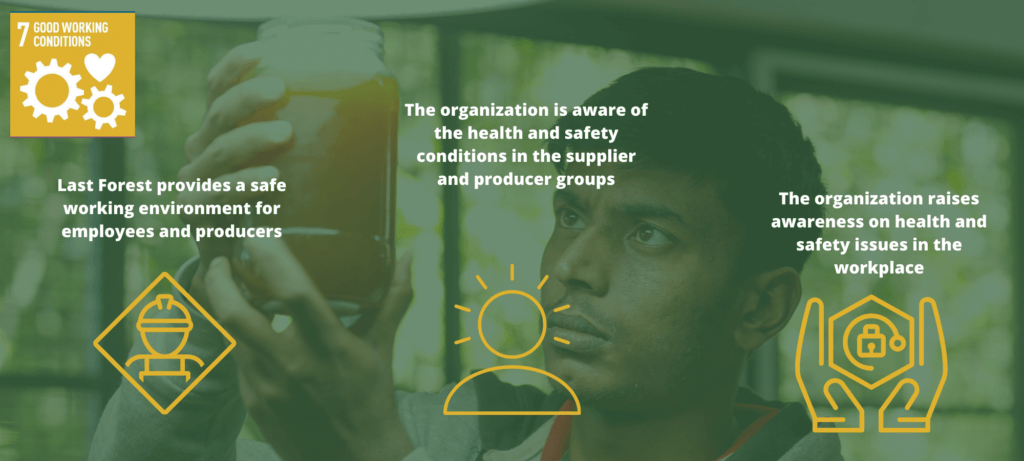
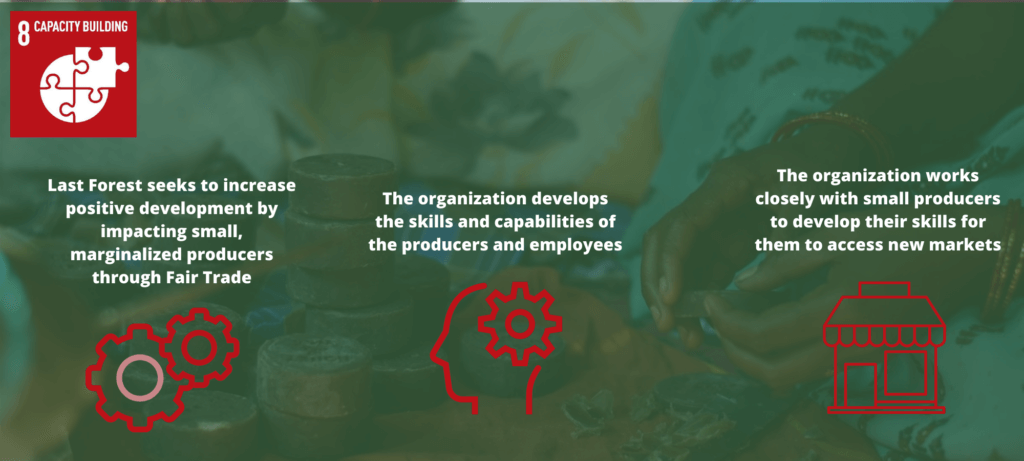
8. Providing Capacity Building
Last Forest seeks to increase positive developmental impacts for small, marginalized producers through Fair Trade. We develop the skill and capabilities of our own employees and members.
9. Promoting Fair Trade
Last Forest raises awareness of the aim of Fair Trade and of the need for the greater justice in world trade through Fair Trade. It advocates for the objectives and activities of Fair Trade according to the scope of the organization. The organization provides its customers with information about itself, the products it markets, and the producer organizations or members that make or harvest the products. Honest advertising and marketing techniques are always used.
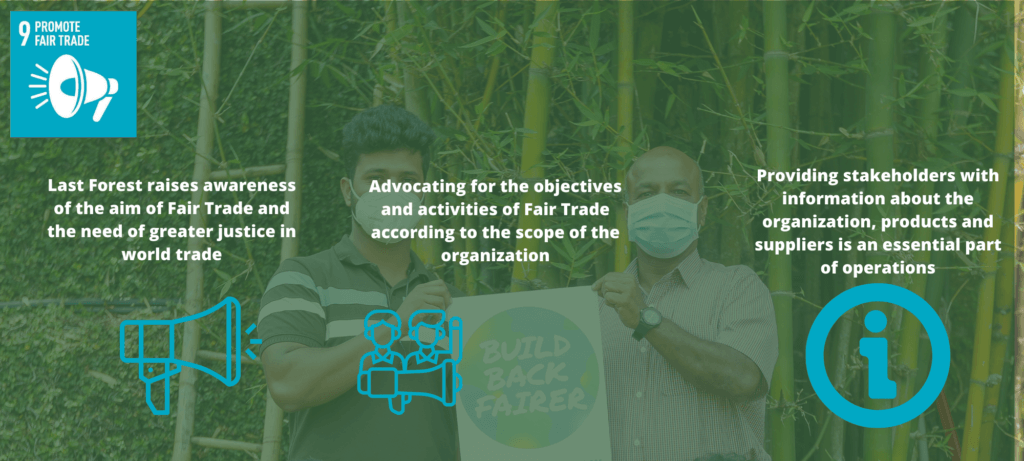
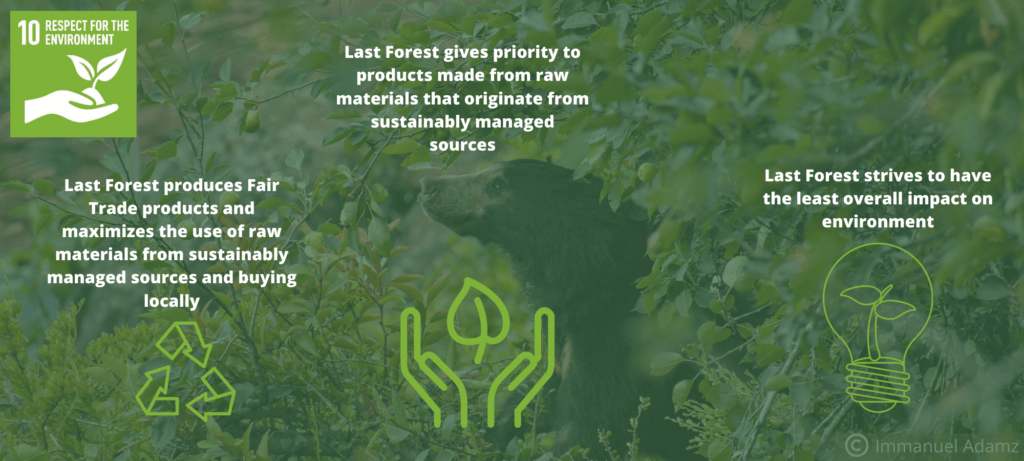
10. Respect for the environment
Last Forest markets Fair Trade products and maximizes the use of raw materials from sustainably managed sources in their ranges, buying locally when possible. We use production technologies that seek to reduce energy consumption and where possible, use renewable energy technologies that minimize greenhouse gas emissions. We seek to minimise the impact of their waste stream on the environment. Fair Trade agricultural commodity producers minimize their environmental impacts, by using organic or low pesticide use production methods wherever possible.
FAQs about WFTO
The World Fair Trade Organization or WFTO for short changes all that. It is a global community focused on social enterprises that prioritises the welfare of the workers.
It is a guarantee system, which attempts to create a new market for products that maintain Fair Trade Practices through its 10 Principles of Fair Trade. This ensures that members of WFTO prioritise the people, the planet and the product quality over the profits made.
Being a guarantee system, it is based on the participation of these members to form trust, a social network and knowledge exchange. The WFTO relies on 10 core principles or goals, each of which is meant to be met through dialogue, transparency, and respect. This in turn promotes sustainable development. These principles entail opportunities for disadvantaged producers, fair and equitable payment, no child or forced labour, non-discrimination, gender equity, good working conditions, capacity building, promoting fair trade, respect for the environment, and accountability and transparency.
By aligning to these principles, WFTO members and/or Fair-Trade Organisations (FTO) aim to create an equitable work environment that prioritises the welfare of the workers and the environment that the company works with.
To know more, hop onto our WFTO page. You can also access these links:
In 2016, Last Forest Enterprises became a WFTO member. By becoming a member, WFTO certified Last Forest as a Fair Trade Organisation.
Last Forest serves as a market platform for many groups from all over India. These small producers then have wider market access.
While the non-profit institution, the Keystone Foundation, endeavours to make an impact on the market side, Last Forest is driven on a slightly different approach. It means to show everyone engaged in the value chain from producers to consumers that it is a profit-driven company but with a difference. The difference is, an atmosphere whose primary concern is ethics and value and development oriented where producers are shareholders.
This structure enables producers to make decisions that benefit not just an individual but the whole community. By focusing on what they best do, they are able to control quality and the consumers learn to value the products more. The synergy between the two institutions and the producers work as a producer-led-enterprise that taps to India’s vast economy.
As mass-marketing and consumption grows exponentially, the workers of the first and secondary sectors not only lose value but face insecurity and the alliance between Last Forest and the WFTO means to rid them of such financial insecurity. This is done by multiple methods.
Firstly, producers are paid upfront for their contributions. This secures their financial output, no matter the success of the product, and a mutual loyalty grows between the company and the producers.
Being a Fair Trade Oranganisation, Last Forest also grows their bond with producer and consumers. Through this process, even when understand and value of the marginal worker diminishes in the mass-market, their value remains or even increases with this alliance with the WFTO. Last Forest is also able to widen the customer base for any product sold.
A Fair Trade Organisation (FTO) is a locally focused guarantee system and products sold have a guarantee label. In the current market, where transparency and clarity is rare, customers are able to trust that the products are sourced and made ethically as well as genuinely have the value they claim.
With this alliance, Last Forest is also able to spread awareness amongst customers, educating them on the process and tradition of a product sharing the understanding and value of the product.
